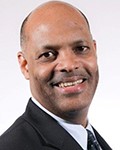Insights from a Global Program Leader in the Pharmaceutical Industry
Kenneth Maynard is a global program leader, central nervous system, at Takeda Pharmaceuticals. In a recent interview, he discussed a variety of topics, including tips for transitioning into the pharmaceutical industry and how to get the most out of your mentoring relationships.
What tips do you have for students and neuroscientists interested in a pharmaceutical industry career?
You need to know what role you wish to play in this arena. In general, based on my own experience and on what I know of industry today, it is best to get trained in academia as long as you possibly can depending on the amount of responsibility that you want to have in industry.
For example, it would be difficult to work your way up from a bench scientist to become head of a disease area in a big pharma company. If you wish to be head of central nervous system drug discovery or head of a therapeutic area, then you’re probably better off transitioning from head of a department or chief of a clinical service because it brings a certain amount of experience and seniority. If what you really want to do is not be a manager and remain at the bench doing basic science, research assays, animal models, and so forth, it would be fine to transition out of academia with a master’s degree or a PhD. If you want to be a group leader, I’d say transition after you’ve achieved a junior faculty instructor or assistant professor position.
Also think carefully about where to position yourself and when to make that transition. Over the last three or four years, many big pharma companies have moved away from performing neuroscience research and development in-house. Now, there’s a lot more open innovation or external innovation models in play so that a lot of drug discovery and animal model work gets done in smaller companies, with the work of big pharma coming in much later.
How have you gotten the most out of your mentoring relationships as a protégé and as a mentor?
As a protégé, I have many mentors. Some of them don’t even know they’re my mentor because I’ve never formally asked them to play this role. I’ve simply approached specific people for specific advice. I try not to over-burden any one person. I keep in touch with them to let them know what’s going on in my life and to have them be part of my successes.
As a mentor, I revel in that. I seek to add as much value as I can to honor those who truly honor me by seeking my thoughts. Watching my colleagues wrestle with their own careers and then watching them have their own success is like watching your own child blossom. It doesn’t get any better than that.
Because many of my protégés are primarily in the academic world, I also benefit in a different way. Because of the work that I do, I need to keep myself at the cutting edge of specific central nervous system indications on which my projects are targeted, but it’s almost impossible for me to keep up with all the neuroscience. So, my mentees teach me about what’s going on at the cutting edge of their world and their science.
What tips do you have for students and neuroscientists interested in a career beyond academia and the bench?
I would strongly advise anyone in this fascinating field of neuroscience to be very deliberate, intentional, and strategic about their career thoughts and aspirations. You need to think deeply about who you are. What are your strengths? What are your passions? Speak with others about it. Don’t trust yourself to be the only authority on you. Others who work and live with you may actually know you better than you think you know yourself. I’m speaking from experience — I’ve done this.
After 10 years working in the academic world and 15 years in pharma, I know now that there’s only one constant, and it’s that things will change. Either you embrace the change and shape it going forward, or resist it and struggle with the change and eventually be a follower. I’ve learned to choose the former. It doesn’t mean that life is any easier, but now I try to be part of the solution shaping tomorrow rather than resisting the inevitable as the world moves forward with new knowledge and understanding.
Seek out and speak with as many people as you can who are doing what you think you’d like to do. Network with them. Think about what it is you want to know about them and ask specific questions.
Be open and don’t be afraid to venture into new territory. The field of neuroscience is developing rapidly. The reality is, people who are typically successful don’t follow the crowds, and this applies strongly in science as well. Work hard and never give up.
Speaker






